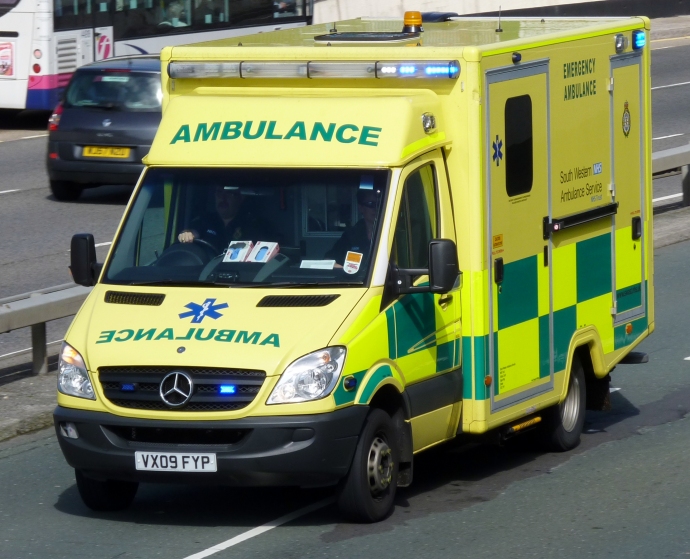Devon and Somerset Fire and Rescue Service is to provide additional support to help South Western Ambulance Service Foundation Trust (SWASFT) during the Coronavirus pandemic.
Starting on Monday 13th April, crews from Devon and Somerset will join fire service colleagues from across the south west to support SWASFT with driving ambulances.
SWASFT are bringing in 15 ambulances to be ‘dual-crewed’ by partners in the south west region. Devon and Somerset will be allocated five of these. The others will be located within Cornwall, Dorset & Wiltshire, Avon & Somerset, and Gloucestershire Fire and Rescue Services.
Ambulance training for firefighters in Devon and Somerset will start on Sunday 12th April, with the first dual-crewed ambulances responding from Monday 13th April. It is expected that all five in Devon and Somerset will be fully operational by the end of the following week (24th April).
Initially, 20 firefighters from Devon and Somerset will be crewing five ambulances, based at Torquay, Exeter, Bideford, Taunton and Shepton Mallet.
The ambulances will be crewed by both wholetime and on-call firefighters who are trained in blue light driving, accompanied by SWASFT’s own medics. The vehicles will be operational 24 hours per day, seven days a week, for an initial period of six weeks.
Lee Howell, Chief Fire Officer at Devon and Somerset Fire and Rescue Service said: “We are happy to be able to help our colleagues at the ambulance service when they need it most.”
“We already have a strong working relationship and have been co-responding to medical emergencies from a number of our fire stations for over 20 years.”
“Given the likely increase in demand on the NHS as a result of COVID-19, we will working even more closely with our ambulance service colleagues to do all we can to help best protect the communities we serve.”
Derek McCullough, South Western Ambulance Service NHS Foundation Trust (SWASFT) Interoperable Capabilities Officer, said: “We are delighted about this partnership with fire service colleagues across the South West to support our frontline care of patients.”
“We have invested in 15 additional ambulance vehicles, which have now been allocated to this important partnership initiative.”
“The partnership will enable us to make more efficient use of our resources, and help us deal with the expected increase in demand over the upcoming weeks. This will mean we are better equipped to reach those most patients in need of our care, and ultimately to save more lives.”







